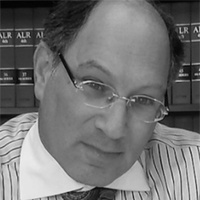Middle River DUI-DWI Lawyer, Maryland
Sponsored Law Firm
-
 x
x

Click For More Info:
-
Isaac Klein Attorney at Law
1 N Charles Street Suite 350 Baltimore, MD 21201» view mapAccident & Injury Law You Need Isaac To Defend You!
Issac Klein has been serving the citizens of Maryland since opening his practice in 1982. If your claim cannot be settled for a fair amount, he can prepare to file suit and go to trial.
800-768-4560
Patrick Preller
✓ VERIFIEDThe Law Office of Patrick S. Preller is dedicated to serving both the community of Baltimore as well as the residents of the State of Maryland. With ... (more)
Charles Waechter
✓ VERIFIEDBel Air Criminal Defense Law Firm If you face criminal charges, an experienced and respected defense lawyer can help protect your rights, evaluate ... (more)
Harry M. Rifkin
✓ VERIFIEDA native Baltimorean, Mr. Rifkin has spent his career helping people. He graduated college in three years from the George Washington University with... (more)
Charles L. Waechter
✓ VERIFIEDBaltimore Criminal Defense Law Firm If you face criminal charges, an experienced and respected defense lawyer can help protect your rights, evaluat... (more)
James E. Crawford
✓ VERIFIED**Helping Good People in Tough Situations Since 1992** My name is Jim Crawford. I founded the Law Office of James E. Crawford, Jr., & Associates --... (more)
FREE CONSULTATION
CONTACTFREE CONSULTATION
CONTACT Isaac Klein Baltimore, MD
Isaac Klein Baltimore, MD Practice AreasExpertise
Practice AreasExpertise






